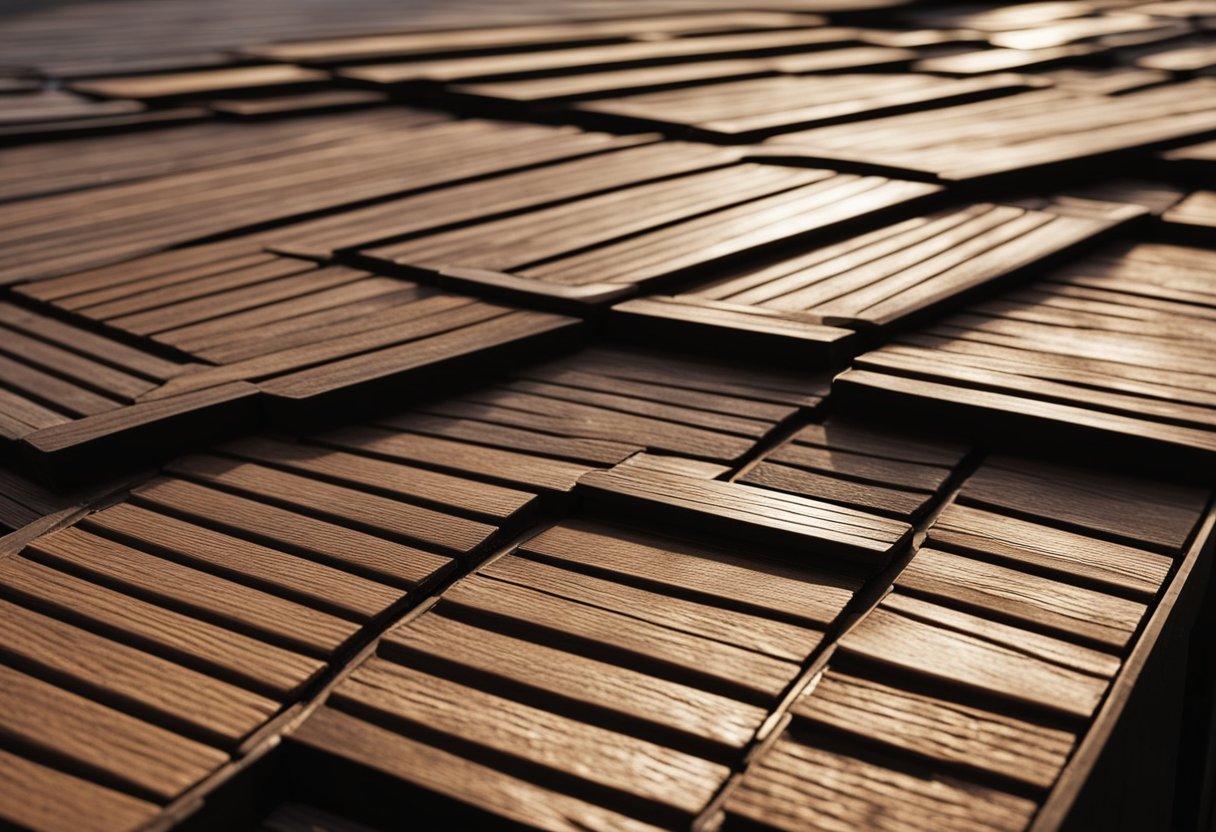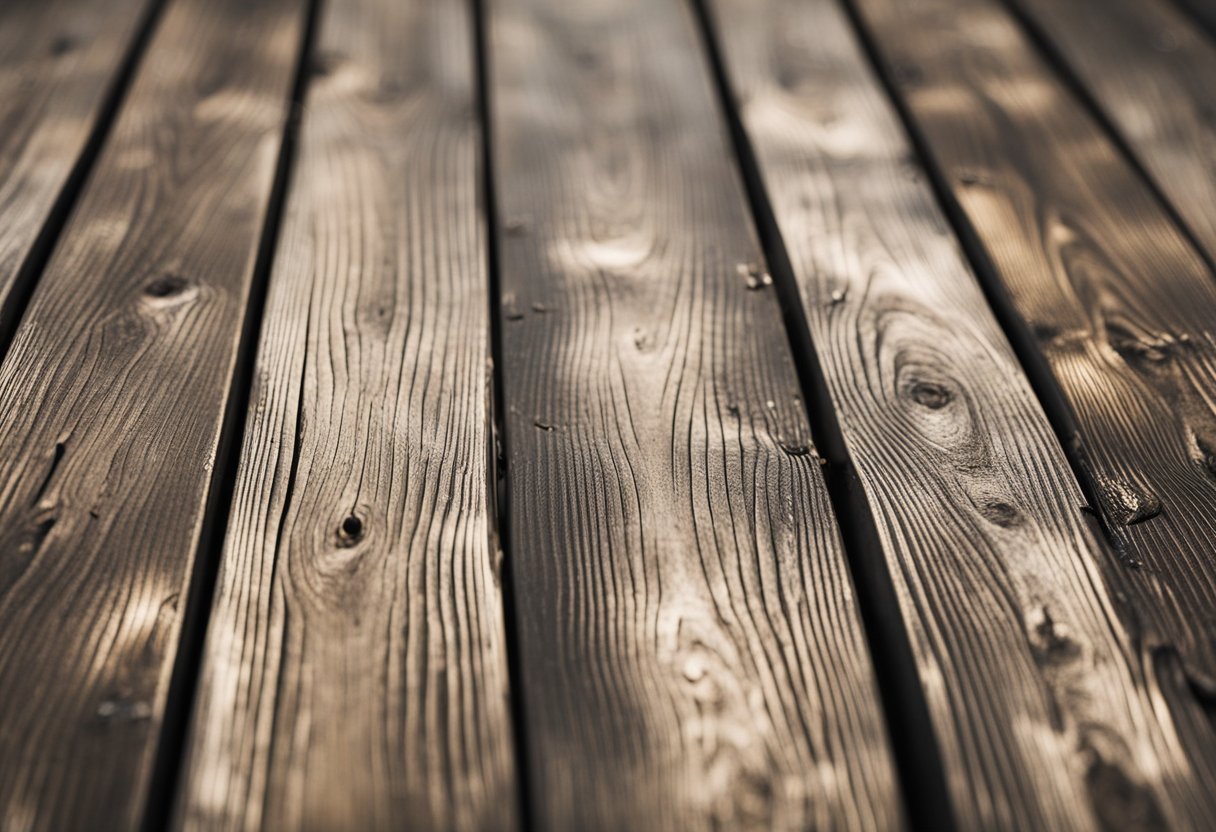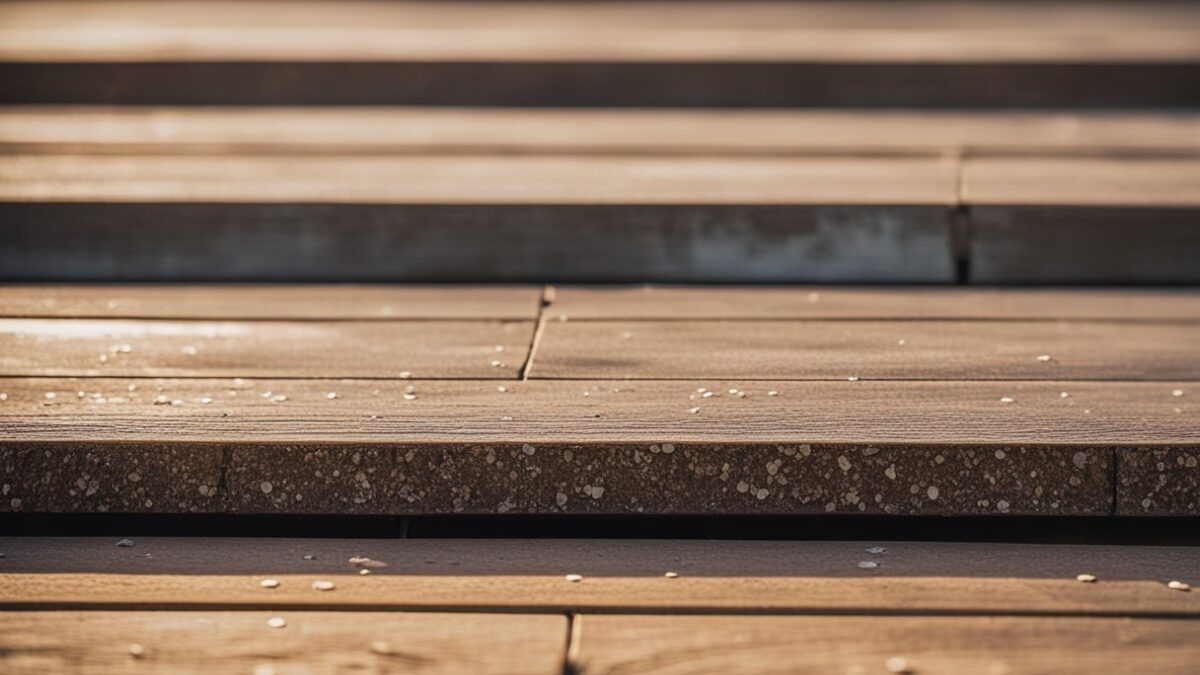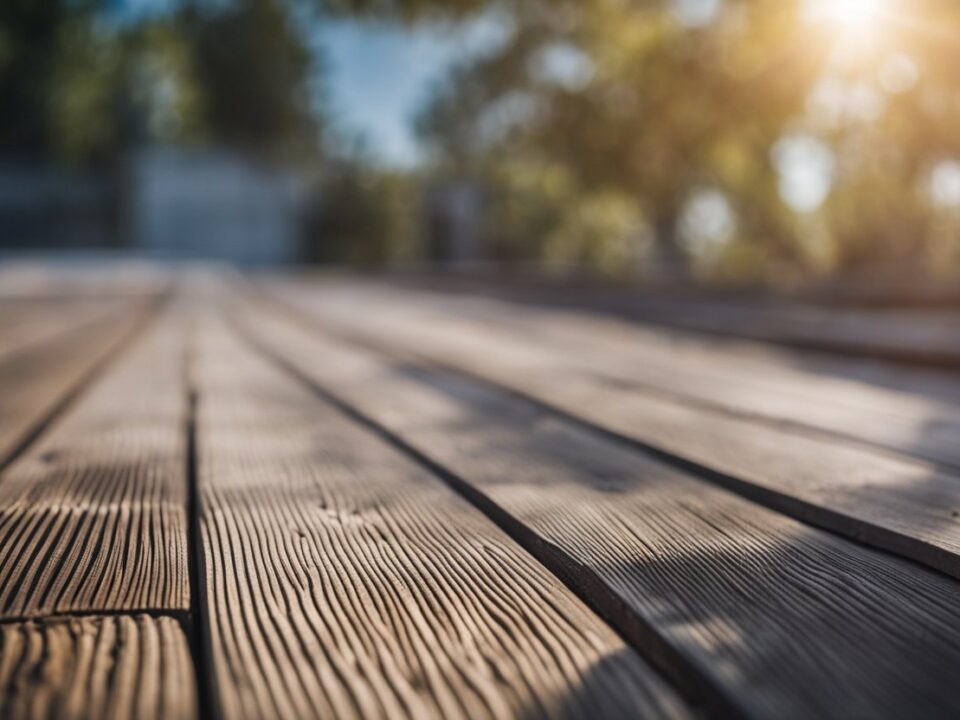
How Do You Secure Trex decking? Essential Installation Tips for a Sturdy Deck
January 19, 2024
What are the Disadvantages of Trex Decking? Exploring the Cons of Composite Materials
February 17, 2024What Are the Common Problems with Composite Decking? Understanding the Challenges
Composite decking has become popular among homeowners for its durability and low maintenance requirements compared to traditional wood decking. However, despite its advantages, composite decking is not without problems that potential buyers should be aware of. Some of these issues stem from the very nature of the materials used in composite decking, which can react differently to environmental factors than pure wood planks. Let’s explore common problems with composite decking!

One of the primary concerns homeowners report is the susceptibility of composite decking to swelling, warping, and shrinking. Fluctuations in temperature and humidity usually cause these problems, as composite materials may expand or contract more than wood in response to these changes. Exposure to the sun can also contribute to these issues, as UV rays can affect the composite material over time. Additionally, composite decking resists rot and moisture but is not entirely immune to mold and mildew, especially in damp conditions or areas with poor ventilation. Regular cleaning is necessary to prevent organic build-up that can lead to such growth.
Issues with installation, such as improper framing, can further exacerbate problems with composite decking. A poorly constructed frame may not provide the necessary support for composite materials, leading to shifting and movement of the decking boards. Fixing methods like hidden fasteners may also lead to maintenance challenges, as the movement of materials might cause boards to come loose. Awareness of these potential problems is crucial for homeowners to ensure that their composite decking remains a functional and attractive outdoor space feature.
Common Problems with Composite Decking
While composite decking offers durability and lower maintenance than traditional wood, it is not immune to issues. Homeowners may face problems ranging from durability concerns to the impact of environmental factors like temperature and moisture.
Durability Concerns
Composite decking boasts a combination of wood fibers and recycled plastics, which aim to provide a sturdier alternative to wood. However, it can suffer from scratches, fading, and stains over time. These damages are often more visual than structural but can impact the decking’s appearance and be difficult to repair.
Expansion and Contraction
The material composition of composite decking means that it naturally expands and contracts with temperature changes. The boards can buckle or warp without proper spacing during installation to accommodate this movement. Homeowners must ensure contractors allow this movement to maintain the deck’s longevity.
Moisture Damage
Despite being marketed for its resistance to moisture, composite decking is not completely waterproof. Wood particles in the material can still lead to mold and mildew if water is allowed to collect and sit on the deck. Proper installation with a slight incline can aid in water runoff, and regular cleaning is recommended to prevent moisture damage.
Installation Challenges

When installing composite decking, one major concern that needs a vigilant approach is managing deck movement due to expansion and contraction. Ensuring the deck remains stationary and maintains integrity over time requires precise measures.
Deck Movement Solutions
Preventing Deck Movement: Proper installation is crucial to stop composite decking from moving. It starts with a robust and level foundation. Installers should strictly adhere to the manufacturer’s spacing guidelines to allow for expansion and contraction. Adequate space between the boards and fixed structures is key to permitting natural movement without warping.
Addressing Expansion Issues: Composite decking will expand and contract with fluctuating temperatures. To mitigate composite decking expansion issues, contractors should use quality fasteners designed to allow movement yet hold the decking firmly in place. Furthermore, specific attention to the type of fasteners, whether hidden or surface and the correct fastener material can play a significant role in the longevity of the decking.
Securing the Ledger Board: Ensuring that the ledger board is securely fastened to the main structure with the correct hardware, such as lag screws or through bolts, can diminish the chances of movement and detachment, which is essential to the deck’s overall stability.
Brand-Specific Issues

When exploring the durability and reliability of composite decking, brand-specific issues such as Trex Decking concerns and historical recall notices and lawsuits provide consumers with critical insight into the performance of these products.
Trex Decking Concerns
Trex is a widely recognized brand in the composite decking market, known for its variety of colors and finishes. Despite their popularity, some users have reported issues with Trex decking. Claims have been made about decking boards warping, fading, and staining, raising concerns about the long-term appearance and maintenance of Trex products. Furthermore, there are anecdotes of surface deterioration and difficulty removing mold and mildew, which can affect the aesthetics and longevity of the deck, as per amber shop.
Recall Notices and Lawsuits
Historical legal challenges have also influenced consumer perceptions of composite decking brands. Trex, for example, faced a class action lawsuit due to claims related to the early-generation decking materials. The lawsuit addressed the fading, discoloration, and mold growth concerns, which led to a settlement for qualifying claims. Consumers are advised to be aware of any past or current recall notices, which can indicate potential issues with composite decking materials and may inform the purchaser’s choices.
Geographical Considerations

When assessing common problems with composite decking, geography plays a significant role. Homeowners in Florida and California must be particularly mindful of how their local climates can affect decking performance.
In Florida, the combination of high humidity, heavy rainfall, and intense sunlight contributes to several issues:
- Moisture Resistance: While composite decking is resistant to water, the humid climate of Florida can encourage mold and mildew growth.
- Heat Retention: Composite materials in Florida may retain heat, leading to discomfort during barefoot walks in high temperatures.
California’s diverse climates, from coastal regions to inland areas, pose different challenges:
- Fading and Discoloration: In sunnier areas, such as Southern California, UV exposure can lead to the fading of composite decking.
- Fire Resilience: In areas prone to wildfires, it’s crucial to consider composite decking’s fire rating. Unlike some woods, certain composite materials may not be as resilient to fire and can release toxic gases when melted.
Homeowners must select products suited to their local environmental conditions to mitigate these geographical challenges.
Tola and Son Construction – Your Go-To Expert Deck Builders in Dallas, TX
Tola and Son are the leading deck builders in Dallas, Texas, renowned for their exceptional craftsmanship and top-notch services. Specializing in TREX decking installation without hidden fasteners, they create sturdy, beautiful decks seamlessly. Beyond decking, they offer various home exterior services, including siding, patio installation, and general contracting services. Their expertise extends across Texas, catering to homeowners’ needs in Dallas and surrounding areas. Tola and Son stand out as the go-to siding contractors in Dallas, Texas, for quality craftsmanship and reliable home improvement solutions.



